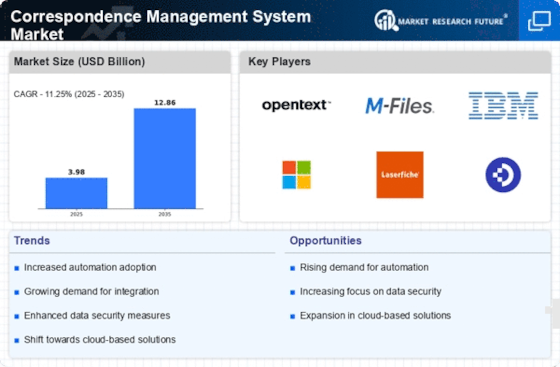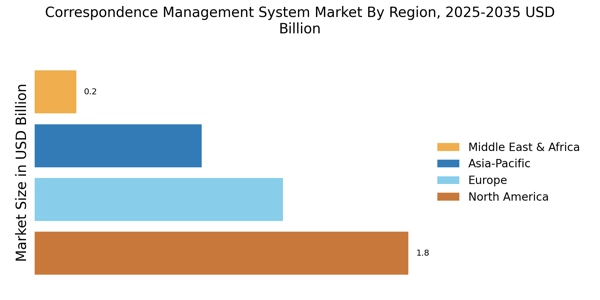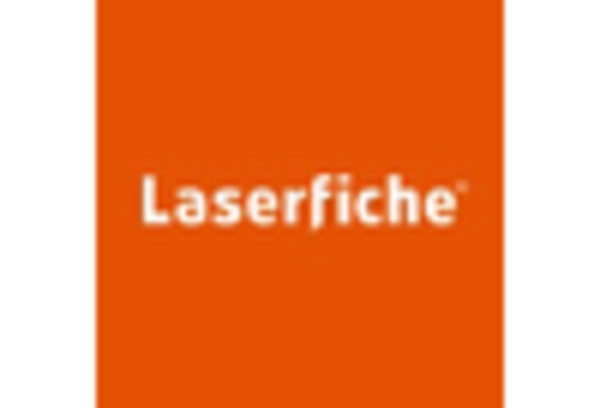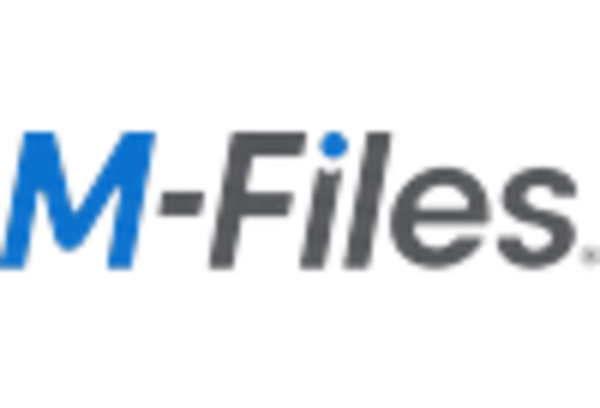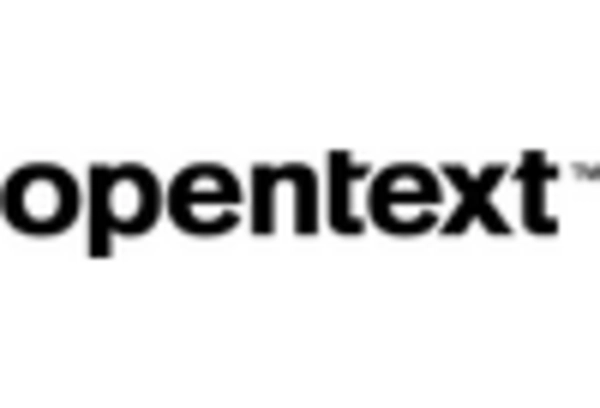Increased Focus on Customer Experience
The Correspondence Management System Market is witnessing an increased focus on enhancing customer experience. Organizations are recognizing that effective communication is integral to customer satisfaction and loyalty. Recent surveys indicate that 75% of consumers expect timely and personalized responses from businesses. Consequently, companies are investing in correspondence management systems that facilitate better tracking of customer interactions and enable tailored communication strategies. This heightened focus on customer experience is likely to drive the adoption of advanced correspondence management solutions, thereby contributing to market growth.
Rising Demand for Efficient Communication
The Correspondence Management System Market is experiencing a notable surge in demand for efficient communication solutions. Organizations are increasingly recognizing the necessity of streamlined communication processes to enhance productivity and reduce operational costs. According to recent data, companies that implement effective correspondence management systems report a 30% increase in communication efficiency. This trend is driven by the need for timely responses and improved customer service, which are critical in maintaining competitive advantage. As businesses continue to expand their operations, the reliance on sophisticated correspondence management systems is likely to grow, indicating a robust market trajectory.
Adoption of Digital Transformation Initiatives
Digital transformation initiatives are significantly influencing the Correspondence Management System Market. Organizations are increasingly investing in digital tools to modernize their communication processes, thereby enhancing overall operational efficiency. Recent statistics suggest that over 60% of enterprises are prioritizing digital solutions to manage correspondence effectively. This shift towards digitalization not only facilitates better tracking and management of communications but also aligns with the broader trend of adopting cloud-based solutions. As more organizations embrace these initiatives, the demand for advanced correspondence management systems is expected to rise, further propelling market growth.
Growing Emphasis on Data Security and Compliance
In the Correspondence Management System Market, there is a growing emphasis on data security and compliance. Organizations are becoming increasingly aware of the risks associated with data breaches and the importance of adhering to regulatory requirements. Recent findings indicate that nearly 70% of companies prioritize compliance when selecting correspondence management solutions. This focus on security is driving the development of systems that incorporate advanced encryption and access controls. As regulatory frameworks evolve, the demand for secure correspondence management systems is likely to increase, positioning this market for sustained growth.
Integration with Artificial Intelligence Technologies
The integration of artificial intelligence technologies is emerging as a pivotal driver in the Correspondence Management System Market. AI capabilities, such as natural language processing and machine learning, are being utilized to enhance the efficiency of correspondence management. These technologies enable automated sorting, prioritization, and response generation, which can significantly reduce the time spent on manual tasks. Current market analysis suggests that AI-driven solutions could improve response times by up to 40%. As organizations seek to leverage AI for operational efficiency, the demand for AI-integrated correspondence management systems is expected to expand.


